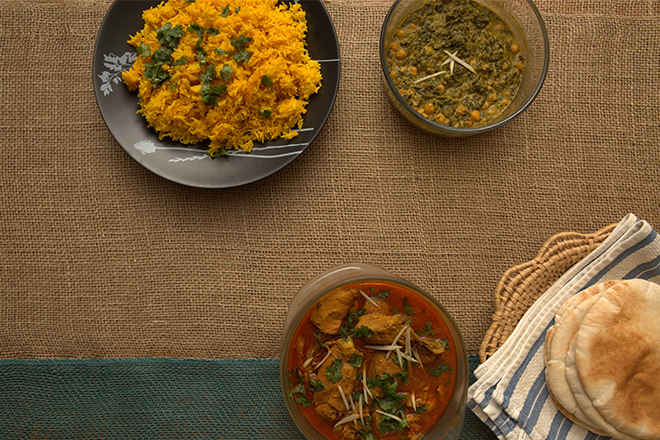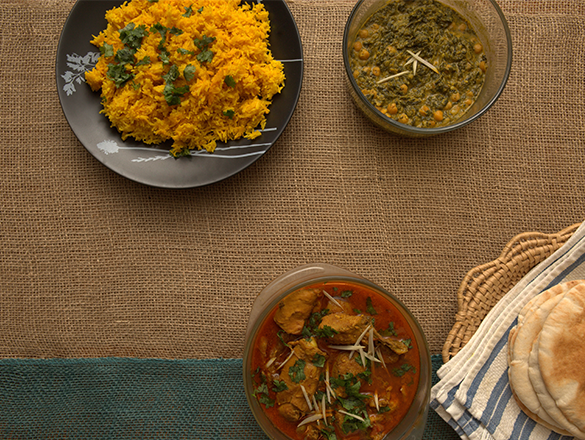Connecting with culture through food
Pakistan
When Asher John came to the United States from Pakistan in 2007, he said he used to think that the U.S. wasn’t just another country. It wasn’t even another continent. It was a whole new planet.
“Everything is different,” John said. “The only thing I could see which was similar was the sky and the stars at night, if you could see them.”
It wasn’t the interactions, atmosphere or the community that he missed from home. The one thing that bothered him the most was the food.
There were no Pakistani restaurants in Muncie, and he didn’t know how to cook when he came to the U.S.
He ate lunch at the Atrium every day his entire first semester. For other meals, he would eat simple foods like bread and grape juice because he couldn’t prepare anything else.
Eventually, John felt like he had no other options but to teach himself how to cook if he didn’t want to be miserable. He looked at recipe books from home, searched online and called his mother and sister for guidance. Since then, he has developed a love for cooking Pakistani food.
When his wife finally came to Muncie in 2011, he taught her to cook. Now, almost every meal they eat is a Pakistani meal.
John said that if he hadn’t learned how to prepare foods from his home country, he never would have been able to live happily in the United States.
“At least I feel like [when] I’m eating, [I’m] at home,” John said. “As far as food is concerned, I’m at home now.”
John and his wife go to an Indian grocery store called Namaste Plaza in Indianapolis a few times a semester to pick up spices. They prepare Pakistani dishes for their church and their friends and teach others to cook as well. Now that he can reconnect to his culture through cooking, he feels much more at home in Muncie.
“Mostly I just miss my family and food,” John said. “You go anywhere else and the only thing you’ll remember [from home] is the food you’re used to and your family and friends.”
China
After a long day of classes and walking around campus in the rain, Shiqi Wang returns to her dorm’s kitchen to begin preparing her favorite foods—dishes that remind her of her friends and family across the globe.
Rice sizzles in a pan and chopped vegetables are spread across the counter. She laughs with some of the new friends she has made since coming to the United States as they take turns taste-testing the foods.
Wang came to the U.S. for the first time at the beginning of this semester to study at Ball State. With no friends, no family and minimal knowledge of English, she found solace in cooking.
“The [aspect] most different about the culture is food,” Wang said.
Wang said she taught herself to cook and that Chinese food isn’t hard to make because of the simple ingredients. According to her, the most important foods in China are rice and noodles because they are eaten with most meals.
Even though she has a meal plan, she said she likes to cook traditional Chinese foods around four times a week for herself and her friends.
“I like when people eat my food and they feel very happy,” Wang said. “They will be reminded of our country.”




